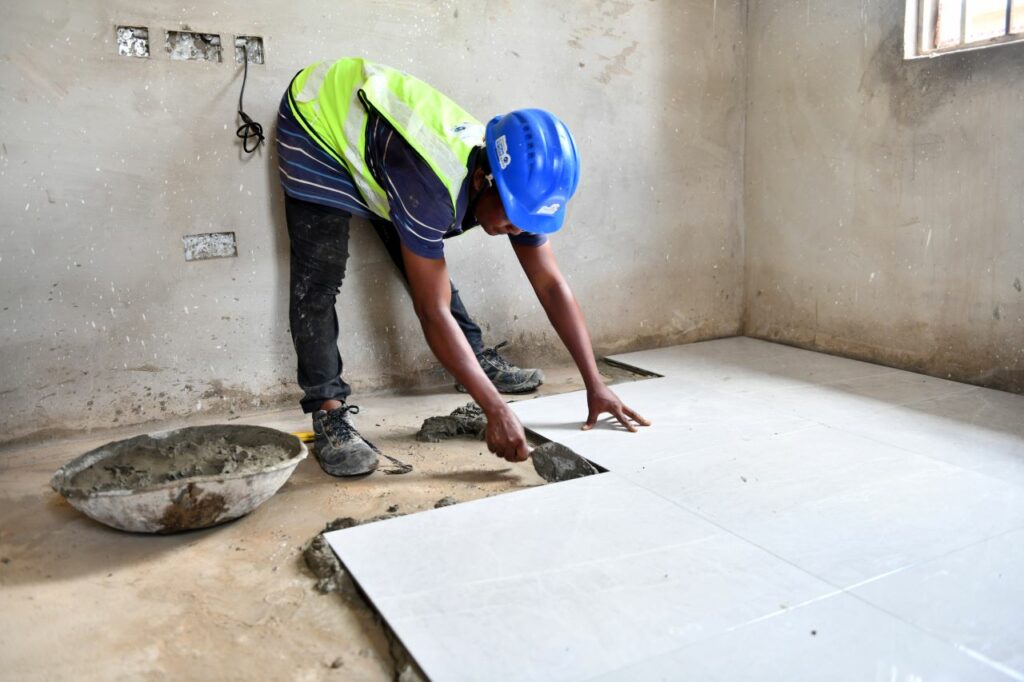In Tamale, the capital of Northern Ghana, passersby often stop to marvel at a crew of 10 tile layers laughing and trading quips at a local construction site. It’s not something they see every day. Why? Because six of the crew members are women.
This moment is made possible by Ayisha.
Ayisha, 27, was in an arranged marriage and struggling to make ends meet when she heard a radio announcement about a job-training program. After interviewing at the program office, the next morning, she decided to register for tile laying – a trade she knew nothing about – on the spot.
“First, I thought it was for males,” she recalls. “Lifting tiles from here and there seemed like a huge thing. I was a bit afraid to learn it. But if you don’t try, how will you know?”
Her husband, mother and father-in-law didn’t understand why she would want to do “a boy’s job.” Many friends attempted to dissuade her, saying it would destroy her beauty and spoil her skin. But Ayisha persevered and learned quickly. “[Tile laying] is not anything harsh; I could do it,” she says. “Now I am a master, and I am proud of my work.”
Today, the same people who made cracks about how they would never date a woman who works in construction approach her for contract work as labourers and masons. Even the dynamics of her marriage have shifted. Her husband is now proud and respectful, marvelling at all the people she finds work for – himself included.
Beyond providing casual employment, Ayisha has gone on to teach six young women (and three young men) to lay tiles through her registered company, Dinveilla Construction Works.

For Ayisha, who had never seen a female tile layer before she became one, the most rewarding part of her career journey has been training girls. “I don’t want this moment to be only in Ghana but to move farther,” she says. “I want people to know that women; we can do something.”
In Ghana, a society where age commands respect, youth struggle to access quality education and training that aligns with job opportunities.
Ayisha’s plan came together with the support of Pathways for Sustainable Employment for Women and Youth (PASEWAY), a three-year project facilitated by Plan International Ghana and local partners that helped young people across Northern Ghana gain job training and business skills.
Through PASEWAY, more than 4,200 young people like Ayisha received technical and soft-skills training in the construction and hospitality sectors. Over 50% of those who secured internships in these fields went on to be offered full-time employment.
Ayisha was one of 500 PASEWAY graduates who went on to formally register her microbusiness, a move that gave it more credibility as well as better access to government and private contracts.
With about 200 million people aged 15 to 24, Africa has the youngest population in the world. This number will double by 2050, creating what the African Development Bank calls a “ticking time bomb”, given youth unemployment currently affects one in three young Africans. Barriers include:
In Ghana, 46% of businesses are owned by women, but many lack the support necessary to grow.
Approximately three-quarters of unemployed adults in Ghana are “young.” In a society in which age commands respect, youth struggle to access quality education and training that aligns with job opportunities.